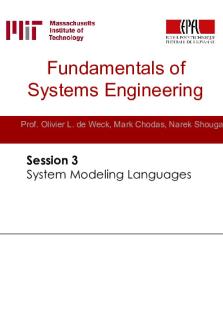Interviewing Client - Lecture notes 3 PDF

| Title | Interviewing Client - Lecture notes 3 |
|---|---|
| Course | Interviewing, Counseling, and Negotiation |
| Institution | Universitas Gadjah Mada |
| Pages | 2 |
| File Size | 48.2 KB |
| File Type | |
| Total Downloads | 24 |
| Total Views | 73 |
Summary
INTERVIEWING CLIENTS 1. 2. 2. 4. BEFORE THE INTERVIEW a. Client made appointment with the secretary - name, address, basically all identity shit, AND the problem client is dealing with b. Secretary has to suggest the client to bring necessary documents. Ex: in child custody, you gotta bring b...
Description
INTERVIEWING CLIENTS 1. BEFORE THE INTERVIEW a. Client made appointment with the secretary - name, address, basically all identity shit, AND the problem client is dealing with b. Secretary has to suggest the client to bring necessary documents. Ex: in child custody, you gotta bring birth certificate of the child c. Lawyer read the appointment brief d. Lawyer read the law/cases related to the client's problem. 2. ORGANISING INTERVIEW a. Brief opening part b. Information-gathering part c. Goal-identification part --> ask what's the goal of the client, what they want. d. Preliminary strategy part --> suggestion of what they should do e. A closing phase --> decide whether client want to hire you or not, giving business cards, etc. 2. BEGINNING THE INTERVIEW a. Greet the client i. Call by the client's name ii. Explain that the first interview is free of charge iii. There are several principles in interviewing client you need to lay out 1. Confidentiality - every info during the interview session will be kept for the law firms only for the interest of solving the client's problem, not shared w/o consent of client. 2. Conflict of interest principle - whenever the lawyers are having conflict of interest with client's case then the lawyer needs to withdraw himself from the case. b. Ask the client's problem i. Do not interfere ii. Active listening - pay attention, eye contact, note it down, friendly hand gesture, etc. 4. INFORMATION GATHERING a. Cognitive interview - purpose: to recall your client's memory by several stage i. Reinstate the context - imagine the timeframe when the shit happens (did it rain? Heavy traffic?) ii. Ask them to tell you everything iii. Recall the event in different orders --> this technique is used for investigations since its believed when you ask s/o to do this, it makes it harder for them to lie.
iv.
b. c.
d.
e.
b.
Change of perspective - more objective memory, also to prevent them to be dominated from their own subjective memory. Ask open ended narration stage - open questions to get a bigger picture "tell me in your own words whatever you can remember about the incident." Probing stage - get back to the info and ask the details of the event. "You mention earlier about blabla, can you explain more about that?" Review stage - when probing is enough, you repeat the client's information by paraphrasing it. "so in summary you blablablablabla". When you organize the questions: i. Start with the broad question first - "tell me everything you remember"; that happened after that? Why do you think these people are after you?" ii. Involve narrow question - "who called the police?" "what time did it happen? How many people broke into your house?" FORMULATING QUESTIONS i. A good questions 1. Does not confuse; 2. Does not provoke resistance; - you were drunk-driving weren't you? 3. Does not distort memories; - "when the burglar got into your house, they brought guns, didn’t they?"
5. GOAL IDENTIFICATION a. What the client wants. If its transactional, it has a certain shape. b. Dispute: compensation or preventing loss 6. PRELIMINARY STRATEGY a. General suggestion - just a friendly suggestion and not technical or legal b. Legal suggestion 2. CLOSING a. Two agreement conclude the interview i. The client is hiring the lawyer to do the work ii. What each party will do b. Explain how the client can contact the lawyer - by giving them your business card. c. Follow up if not hired...
Similar Free PDFs

Interviewing
- 19 Pages

3. Client Interview
- 19 Pages

Lecture notes, lecture 3
- 5 Pages

Lecture notes, lecture 3
- 8 Pages

Notes#3 - Lecture 3 notes
- 49 Pages

Lecture notes, lecture 3
- 59 Pages

3 - Lecture notes 3
- 7 Pages

Client Client Conflicts
- 4 Pages

MOTIVATIONAL INTERVIEWING
- 4 Pages

Motivational Interviewing
- 13 Pages
Popular Institutions
- Tinajero National High School - Annex
- Politeknik Caltex Riau
- Yokohama City University
- SGT University
- University of Al-Qadisiyah
- Divine Word College of Vigan
- Techniek College Rotterdam
- Universidade de Santiago
- Universiti Teknologi MARA Cawangan Johor Kampus Pasir Gudang
- Poltekkes Kemenkes Yogyakarta
- Baguio City National High School
- Colegio san marcos
- preparatoria uno
- Centro de Bachillerato Tecnológico Industrial y de Servicios No. 107
- Dalian Maritime University
- Quang Trung Secondary School
- Colegio Tecnológico en Informática
- Corporación Regional de Educación Superior
- Grupo CEDVA
- Dar Al Uloom University
- Centro de Estudios Preuniversitarios de la Universidad Nacional de Ingeniería
- 上智大学
- Aakash International School, Nuna Majara
- San Felipe Neri Catholic School
- Kang Chiao International School - New Taipei City
- Misamis Occidental National High School
- Institución Educativa Escuela Normal Juan Ladrilleros
- Kolehiyo ng Pantukan
- Batanes State College
- Instituto Continental
- Sekolah Menengah Kejuruan Kesehatan Kaltara (Tarakan)
- Colegio de La Inmaculada Concepcion - Cebu





